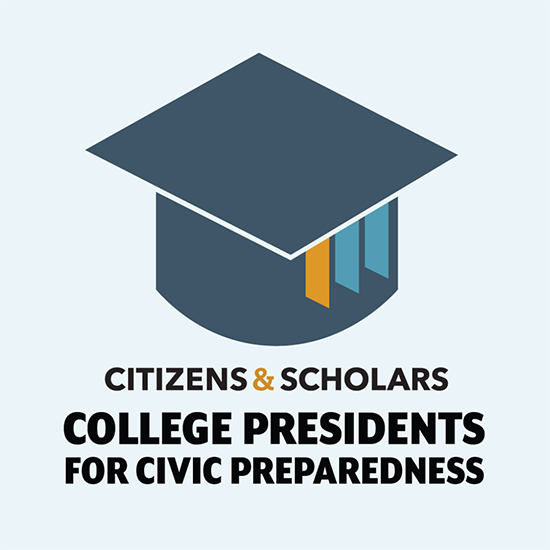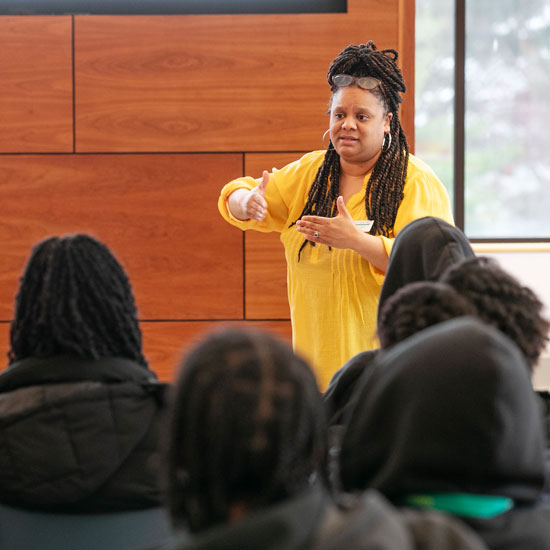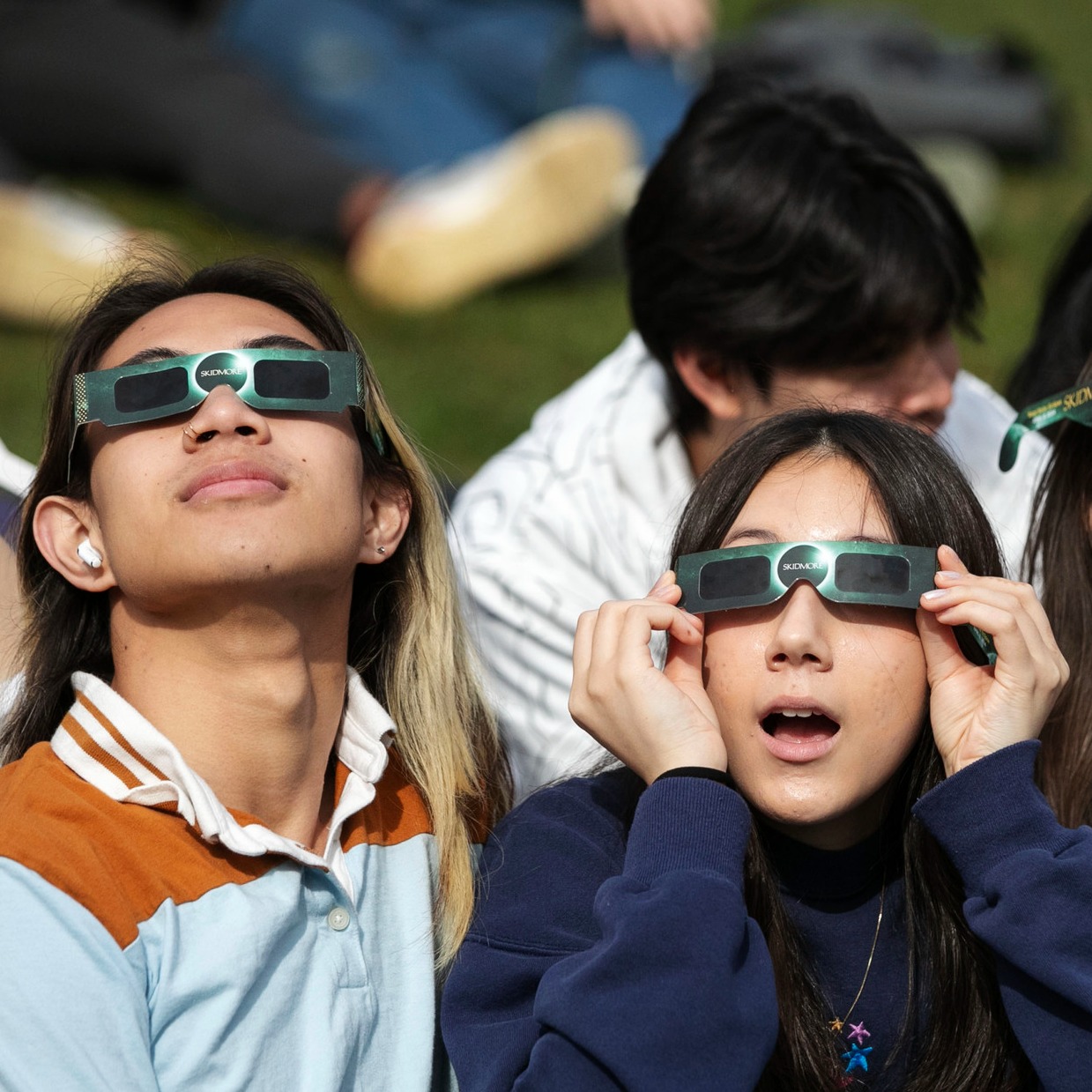Student builds her school a science lab
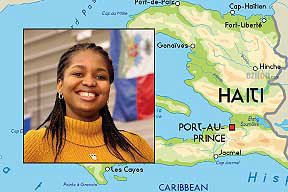
Kengthsagn Louis ’17
Growing up in Port-au-Prince, Haiti, Kengthsagn Louis ’17 remembers being wowed by science, especially physics. “But I never got to go to a science fair or even see a science laboratory. After awhile, I just lost interest.”
But that didn’t mean she forgot. Science labs are a rarity in Haiti, and a devastating earthquake in 2010 left the capital, Louis’s hometown, a veritable tent city. But this past summer, the Skidmore double-major in psychology and business returned to her all-girls high school, Lycée Marie-Jeanne, to overhaul a classroom into a laboratory.
To fund her project, Louis and Samantha Bourdeau, another Marie-Jeanne alumna who is now at Colby College, earned a Davis Projects for Peace grant of $10,000. All undergraduates at the 91 American colleges and universities that are partners in the Davis United World College Scholars Program are eligible to compete for the grants. Louis attended a UWC program in Singapore before enrolling at Skidmore.
In addition to the Davis grant, Louis secured $2,000 from the Saratoga Springs Rotary Club and $2,000 from the CEO of Albany-based Krackeler Scientific. Skidmore and Colby science departments contributed a range of equipment—for example, Skidmore geosciences donated two stream tables, a groundwater model, a pump, safety goggles, and rock and mineral samples.
The project’s long-term goals are to increase science literacy among Haitian females and give them an opportunity to compete professionally in the sciences, and also encourage them to draw connections between social issues and the sciences so they can take action in their communities.
Louis admits the project was “ambitious,” and it required more resources than planned. Shipping one container of equipment and paying customs fees and taxes totaled well over $5,000 and airfare, lodging, and food came to $2,000. That didn’t leave much for a plant light house, vortex mixer, gas law apparatus, and other gear.
But money wasn’t the biggest stumbling block—the Haitian bureaucracy was. The container arrived in early summer, but it took two months and lots of unexpected paperwork before the project team got clearance from customs, a delay that compromised the scheduled teacher-training workshop.
During the waiting period, per their plan, the team bought cabinets and hired a carpenter to build 25 lab chairs and a plumber to install two sinks.
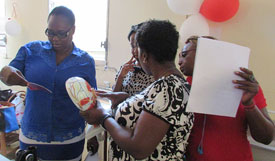
Unpacking lab gear at Lycée Marie-Jeanne.
But more importantly, the ever-persistent Louis visited the Haitian Ministry of Education to seek help with customs, and “once the ministry realized that this science lab was actually going to get built, they took it seriously,” she says. “They offered to appoint a full-time technician to help manage the lab and train the teachers. This gesture was of the utmost importance, as it makes the project more sustainable. And it inspired them to start brainstorming how they could provide science laboratories to other Haitian schools.”
Ultimately the lab took shape and 12 teachers received preliminary training. One day, Louis recounts, a visiting Lycée Marie-Jeanne alumna studying nursing got “particularly excited, because it was the first time she had been in a science laboratory, ever. It pleased her to think of how confident today’s students will feel about their knowledge and practice of science.”
For Darren Drabek, Skidmore’s coordinator of international student and scholar services, “What impresses me the most is that when given a chance to make a difference, Kengthsagn used a grant that promotes peace to wage war on educational inequity, which she personally experienced.” He adds, “Skidmore is fortunate to be a partner college with the Davis UWC and Projects for Peace.”
Louis, who plans to pursue a Ph.D. in organizational behavior in order to “maximize everybody’s human capital,” says the project provided “a greater understanding of my strengths and weaknesses as a leader and agent of change. Now it will be easier to strategize for my next social project.”
Which could start soon, thanks to her first-place social-entrepreneurship prize of $5,000 in Skidmore’s 2015 Freirich Business Plan Competition. The prize will support her start-up nonprofit, Syans Pou Anise Fondasyon, for building more science labs in Haitian schools. She says every school should have a lab, because “you can use science to solve issues in your own community, your own country.”
Meanwhile, Louis plans to check up on Lycée Marie-Jeanne’s new lab next time she’s in Port-au-Prince.
